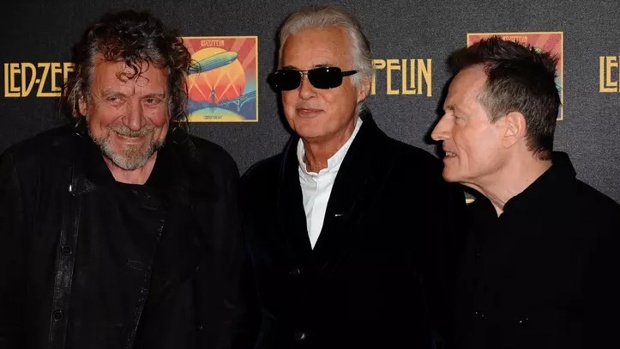Led Zeppelin wins "Stairway To Heaven" case
- Publish Date
- Tuesday, 10 March 2020, 12:51PM

Getty Images
Led Zeppelin has again come out on top in the long-running dispute over whether guitarist Jimmy Page stole part of "Stairway to Heaven" from the lesser known American rock group, Spirit.
The Ninth Circuit Court of Appeals on Monday upheld a trial court's 2016 determination that Led Zeppelin did not commit copyright infringement on its iconic 1971 hit song.
It was announced last summer that the case was heading back to court, as lawyers for the estate of deceased Spirit songwriter Randy "California" Wolfe argued that the trial judge erred by not allowing the recording of Spirit's instrumental, "Taurus," to be played for the jury along with "Stairway."
Prior to 1978, music was only copyright protected in the U.S. as sheet music submitted to the federal Copyright Office. Attorneys fighting Zeppelin on behalf of Wolfe's estate sought to exploit the slapdash nature of many such 'deposit copies' to prompt Page into admitting to stealing part of "Stairway."
The section of "Stairway to Heaven" at issue — the intro — was not included in sheet music submitted to the government by Atlantic Records. While that could mean that other parts of "Stairway" (and the greater canon of American popular music) not included in deposit copy are not copyright protected, it also meant that when the two songs were played at trial by a pianist, they did not sound as alike as the plaintiffs argued.
Lawyers for Wolfe's estate wanted the recordings played at a new trial. Lawyers for Led Zeppelin argued that the court would come to the same conclusion.
Monday's ruling in favor of Zeppelin, explained in a 54-page document, will likely become a new standard for copyright infringement cases, to the relief of the music industry at large.
The court ruled that the trial judge did not make a mistake by preventing the jury from hearing recordings of "Stairway to Heaven" and "Taurus" at trial. To the relief of countless non-classically-trained musicians, the court also accepted precedent for pre-1978 audio recordings to be upheld as deposit copy, noting that "the statute is clear and unambiguous."
But the court went further, overturning the "inverse ratio rule," which has been applied to copyright cases in the Ninth Circuit for over 40 years. The rule stated that access to a particular work lowers the bar for proving substantial similarity.
Zeppelin toured with Spirit in the late-'60s and Page admitted at trial that he has a copy of the album on which "Taurus" appears in his record collection. He insisted during testimony, however, that he was not familiar with the specific track.
In striking down the inverse ratio rule the appeals court invalidated the plaintiff's strongest argument against Led Zeppelin.
Anything that strengthens protections for defendants in future copyright suits will be applauded by the music industry, which has fought numerous high-profile copyright suits in recent years.
More than 120 musicians signed an amicus brief siding with Led Zeppelin in the case last summer. Even the Justice Department urged the court to re-examine protections for defendants.
Many musicians have noted over the years that the section of "Stairway" at issue in the lawsuit employed a centuries-old compositional technique to which no one can credibly claim ownership.
This article was first published on iheart.com and is republished here with permission
Take your Radio, Podcasts and Music with you

